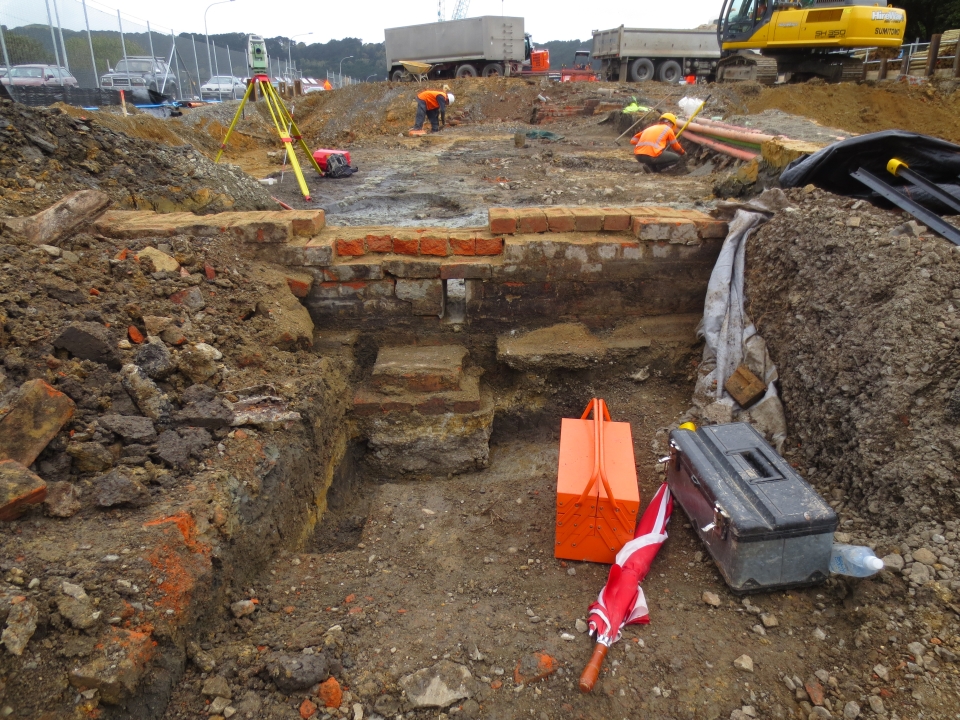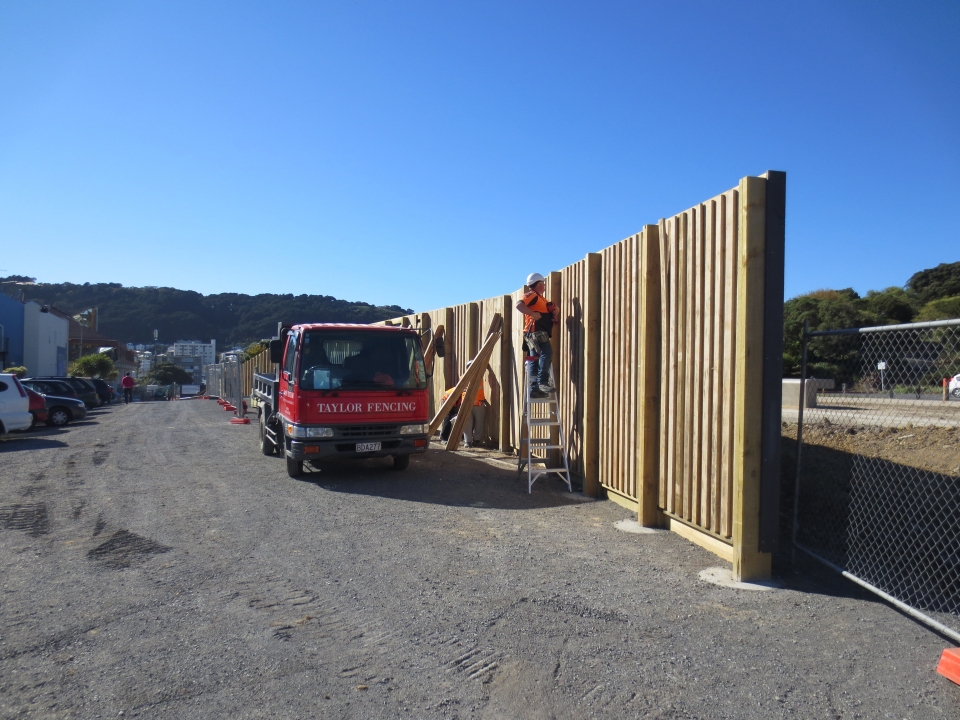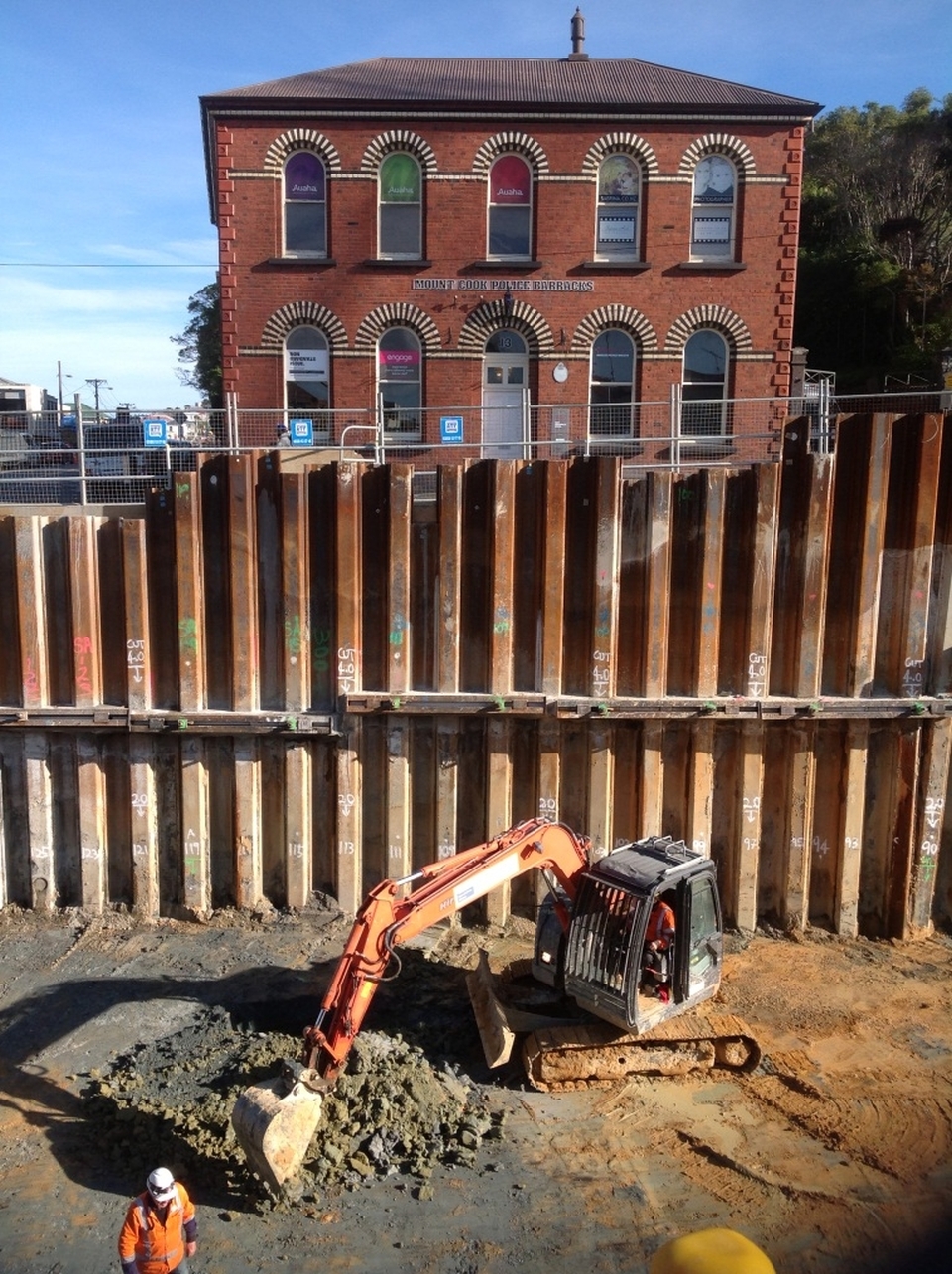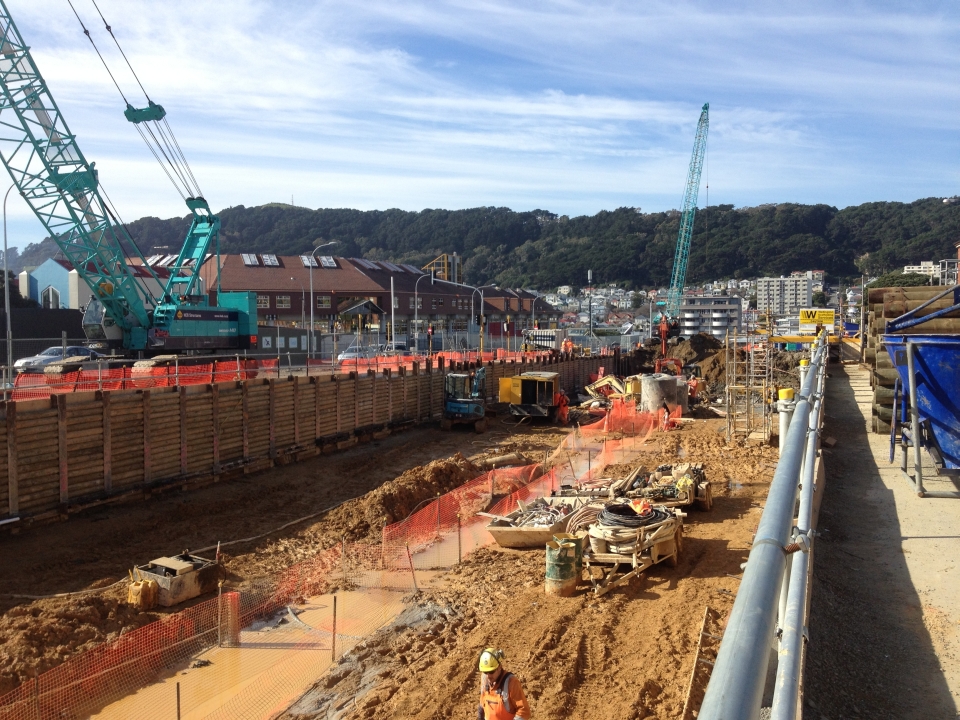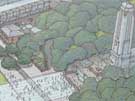Before a project of this size can go ahead it must meet certain rules that are in place to reduce the impact of construction on people and the environment.
There are rules for projects to reduce the impact of construction on people and the environment.
An important job for the Alliance engineers and designers is to work out what might go wrong and how to avoid it. Careful planning helps the Alliance to be a good neighbour to the schools, businesses and people passing by.
Effects on traffic during construction
A temporary road has been set up for traffic to pass by the construction site. This is called the Buckle Street Diversion and is part of State Highway One. Once Buckle Street is underground, this temporary road will be removed and the land will become part of the park.
A very small part of the old Buckle Street remains intact so visitors can access the National War Memorial after coming along Tasman Street.
Mount Cook School
Mount Cook School is very close to the Memorial Park construction site. The construction workers have built a wall by the school so the noise from the machinery is not too loud in the classrooms. This is called a noise wall and it blocks sound waves.
The workers keep the project site clean and tidy and make as little dust as possible. The NZTA undertook air quality modelling before moving Buckle Street closer to Mount Cook School. The modelling showed no significant increases in air pollution. A monitoring machine at the school continues to measure how much dust gets into the air the children are breathing.
The workers have bored deep holes by the school so they can monitor the ground water levels beside the trench. If necessary, the workers will pump water into the holes if the ground becomes too dry. This stops the soil from shrinking and prevents any damage to the buildings’ foundations.
Buried Treasures
The road workers have been very careful when they dug up the ground in Buckle Street because items that people used long ago may be buried here. It is like finding buried treasure.
The Alliance has a team of archaeologists whose job is to preserve the pieces of the past that are found. Some large treasures they found were a gun pit which once housed a cannon and the brick foundation walls from the former army drill hall.
Some of the smaller treasures they have found are on show at the Alliance information centre in Taranaki Street.
Relocating historic buildings
One treasure that has always been above ground is the historic Home of Compassion Crèche building near the Basin Reserve. It was a childcare centre built in 1914 for the nun, Mother Suzanne Aubert, who was famous for helping poor families.
The Alliance will move the crèche a short distance away from the new road and it will have its own place inside the Memorial Park.
Two important jobs for the Alliance engineers and designers are to;
- work out what might go wrong
- work out how to stop it happening.
Careful planning helps the Alliance to be a good neighbour to the schools, businesses and people passing by during construction.
Effects on traffic during construction
A temporary road has been set up for traffic to pass by the construction site;
- It is called the Buckle Street Diversion
- It is part of State Highway One
- Once Buckle Street is underground, this temporary road will be removed
- The land where the temporary road was, will become part of Memorial Park.
A very small part of the old Buckle Street remains intact so visitors can access the National War Memorial after coming along Tasman Street.
Mount Cook School
Mount Cook School is very close to the Memorial Park construction site.
- Construction workers have built a wall by the school so the noise from the machinery is not too loud in the classrooms
- The wall is called a noise wall and it blocks sound waves.
The workers keep the project site clean and tidy and make as little dust as possible.
- The New Zealand Transport Agency did some modelling (using computers) to help understand what the air quality would be like if Buckle Street was moved closer to Mount Cook School
- The modelling showed no big increase in air pollution
- A monitoring machine at the school continues to measure how much dust gets into the air the children are breathing.
The workers have bored deep holes by the school so they can monitor the groundwater levels beside the trench.
- If necessary, workers will pump water into the holes if the ground becomes too dry
- This stops the soil from shrinking and prevents any damage to the buildings’ foundations.
Buried Treasures
Items that people used long ago may be buried under Buckle Street;
- The road workers are very careful when they dig up the ground
- It is like finding buried treasure!
- A team of archaeologists preserve the pieces of the past that are found
- Some large treasures they found were:
- a gun pit which once housed a cannon
- the brick foundation walls from the former army drill hall.
Some of the smaller treasures they have found are on show at the Alliance information centre in Taranaki Street.
Relocating historic buildings
One treasure that has always been above ground is the historic Home of Compassion Crèche building.
- It is near the Basin Reserve
- It was a childcare centre built in 1914 for the nun, Mother Suzanne Aubert
- Mother Suzanne Aubert was famous for helping poor families.
The Alliance will move the crèche a short distance away from the new road and it will have its own place inside the Memorial Park.
Cook Islands Maori keywords:
| maru |
to look after, protect |
| aotini taporoporoia o te basileia |
environment |
| - |
treasures |
| tanu |
to bury, buried |
| kōrero |
history |
Imagine you are a student at Mount Cook School; how will the Memorial Park Project affect you?
Imagine you are a student at Mount Cook School; how do you think the Memorial Park Project will affect you?

